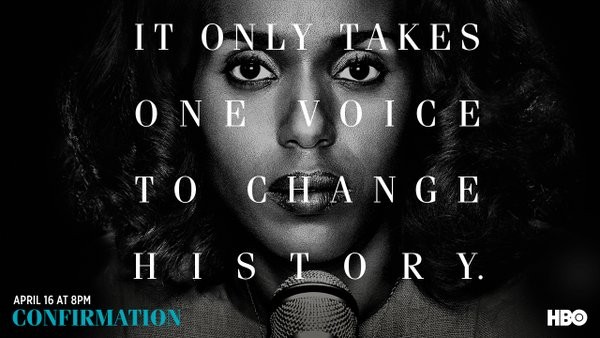
In April, HBO premiered “Confirmation,” the story of Supreme Court Justice Clarence Thomas’s 1991 confirmation hearings. In those hearings, a former colleague, lawyer Anita Hill, testified about the ongoing sexual harassment she endured while working for Thomas. HBO’s film, some 25 years after the hearings that Thomas famously called a “high-tech lynching,” reminds us of the murky waters women must drudge through when facing and reporting sexual harassment—as well as how complicated the intersections of race, gender, law, and work can be.
Hill testified that Thomas sexually harassed her as her supervisor at the Department of Education and the EEOC. Various studies find that at least 40% of all women report experiencing sexual harassment at work during some point of their lives. Women of color experience higher rates of both sexual and ethnic workplace harassment.
- Aniruddha Das. 2009. “Sexual Harassment at Work in the United States.” Archives of Sexual Behavior 38: 909-921.
- Jennifer L. Berdahl and Celia Moore. 2006. “Workplace Harassment: Double Jeopardy for Minority Women.” Journal of Applied Psychology 91(2): 426-436.
Hill testified that she continued working for Thomas despite the ongoing harassment because she had no other job alternatives. This is unsurprising given that women in law professions encounter a glass ceiling that limits upward mobility, often pushing women to pursue a limited track of jobs when seeking promotions. Further, women in law professions report hearing sexist jokes, having their authority questioned, and being complimented on looks rather than achievements—all at higher rates than their male colleagues.
- Elizabeth H. Gorman and Julie A. Kmec. 2009. “Hierarchical Rank and Women’s Organizational Mobility: Glass Ceilings in Corporate Law Firms,” American Journal of Sociology 114(5): 1428–74.
- Patricia MacCorquodale and Gary Jensen. 1993. “Women in the Law: Partners or Tokens?” Gender and Society 7(4): 582–93.
Even women in power are subject to sexual harassment. One study finds that sexual harassment can actually increase when some women occupy supervisory positions. Sexual harassment has much more to do with power than simple workplace hierarchies.
- Heather McLaughlin, Christopher Uggen, and Amy Blackstone. 2012. “Sexual Harassment, Workplace Authority, and the Paradox of Power,” American Sociological Review 77(4): 625-647.

Comments